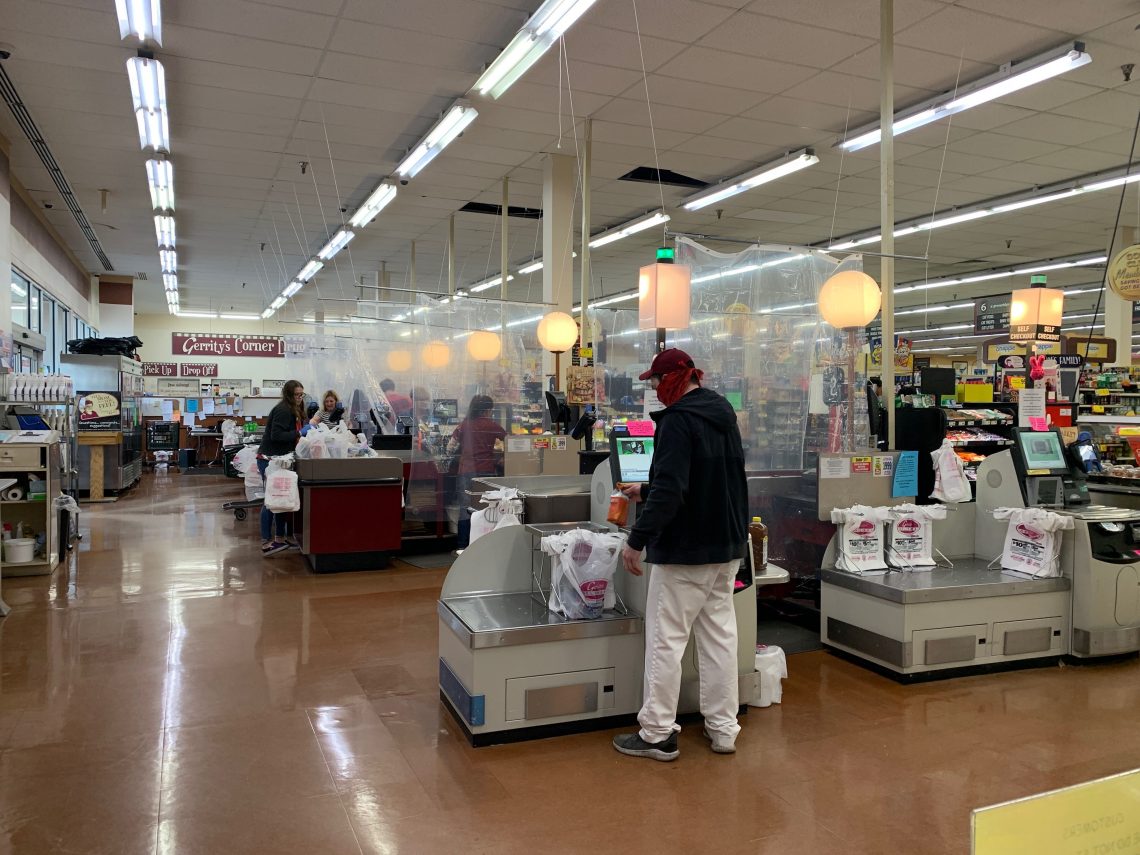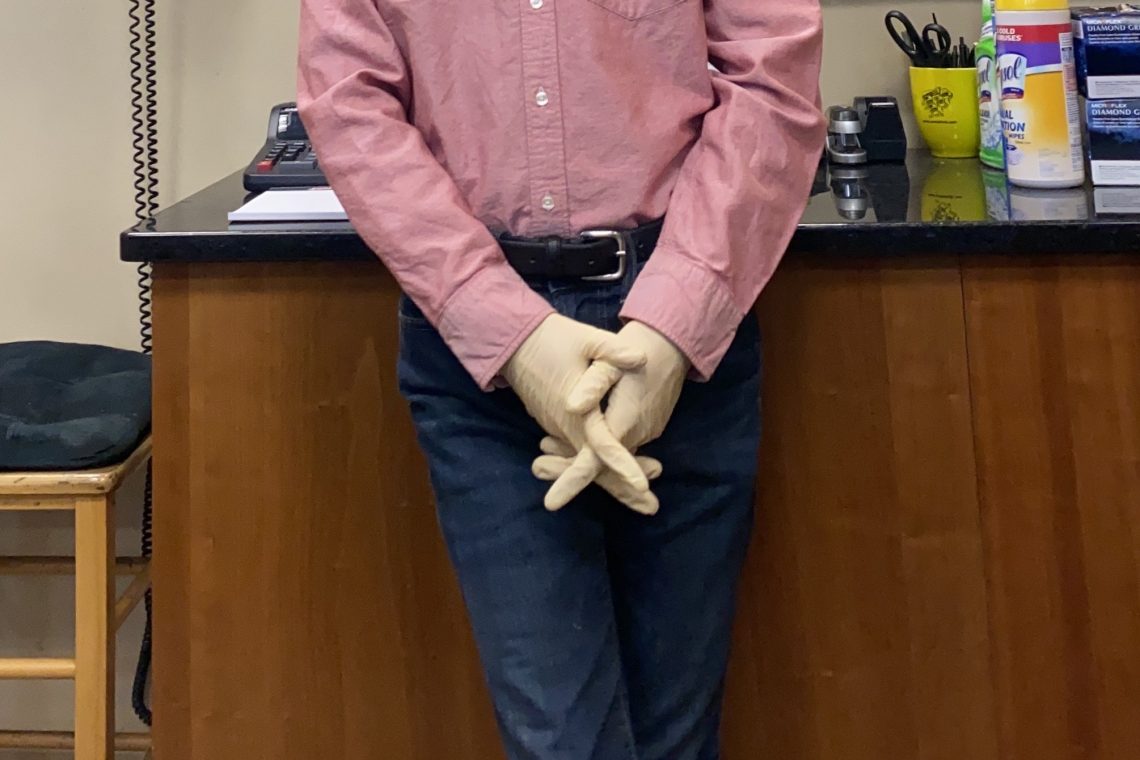
A few weeks ago, Alexandra Pietralczyk worked one seven-hour shift every other weekend at Gerrity’s Supermarket when she’d visit home in Scranton, Pennsylvania.
Since returning home after Temple University closed Main Campus, she is working 39.5 hours a week, on top of balancing her 17-credit, now-online course load.
“When I say I’ve been stressed, it’s an understatement,” said Pietralczyk, a freshman psychology major.
After Temple University transitioned to online classes on March 16, evacuated all on-campus residences and encouraged students living off campus to return home for the rest of the spring semester, many students returned home to jobs and increased hours in positions where they’re considered essential workers during the COVID-19 pandemic.
Industries, like food and agriculture, critical manufacturing and emergency services, have a “special responsibility in these times to continue operations,” according to the United States Department of Homeland Security Cybersecurity & Infrastructure Security Agency.
Gov. Tom Wolf ordered all Pennsylvania “non-life-sustaining” businesses to close on March 19 until further notice due to COVID-19, The Temple News reported. Businesses like grocery stores, public transit and health care facilities are still allowed to remain open.
Yet even before Wolf’s order to close, grocery stores were seeing record amounts of demand for products and facing supply shortages with long customer lines as COVID-19 began spreading in the state. Across the country, grocery stores have taken precautions to protect their essential workers, like having hand-washing breaks and installing hand sanitizer stations in stores, NPR reported.

At Hanna Tracy’s job at Wegmans supermarket in Wilkes-Barre Township, Pennsylvania, her location installed plexiglass screens between cashiers and customers to encourage social distancing. She wears gloves and a mask at work and has to clean her register after every customer.
“It’s like really repetitive, the chemical smells really bothers, like our noses and everything,” Tracy, a freshman criminal justice major, said. “My hands are like, so raw from the hand sanitizer.”
Tracy didn’t have a job during in-person classes, and suddenly returning to work 25 hours a week at her summer job and adjusting her schedule around her online classes was difficult, she added.
Chelsea Lewis, a sophomore finance major who works at Target in Pittsburgh, Pennsylvania, also picked up 25 hours a week when she returned home. At first, adjusting to her work schedule and adapting to online classes caused her to forget an assignment, and she had to ask a professor for an extension, she said.
“I was trying to, you know, plan out my assignments like a week in advance because, you know, normally the time that I would be spending in the library, now I would have to go to work,” Lewis added.
Outside of supermarkets, Ivan Garville, a freshman advertising major, returned to his job at home in Somers, New York, at Aries Automotive repair shop, which is included in New York’s essential businesses list.
“People still need to get to work and if their cars are broken, they’re going to need to take it somewhere,” Garville added.
He’s been working seven days a week, and though there’s stressful days, he’s managing the new schedule well, Garville said. His shop avoids letting customers inside, arranges picking up and dropping off cars and has taken “extreme” measures in cleaning cars.
“I think we are doing the best that we can at the time, but at the same time, there’s always going to be a chance of getting [COVID-19], so like I just feel you have to take all the measures, but you can’t always like, expect them to work out,” Garville added.

At Emma Esterbrook’s family’s pharmacy in West Reading, Pennsylvania, delivery orders have doubled in recent weeks and they’ve had to hire additional delivery drivers. And when coming home from working shifts in-store, she and her family members take extra cleaning precautions.
“Our life at home has changed a lot, because it’s like don’t wear your shoes in the house anytime you come in after work, you have to go shower like take all your clothes off, stick them in the laundry,” Esterbrook, a freshman exercise and sports science major, said. “It’s not like I can come home after work and just like eat dinner and go about my days, it’s like I have to come home, completely like take everything off, shower and make sure that like I’m not getting anyone else in my family sick.”
Despite deliveries, the pharmacy’s business is slower than usual right now, but Esterbrook’s family has no plans of closing their pharmacy because if they do, she’s afraid it might not recover, she said.
Elizabeth McCombs, a junior social work major, has returned to work at her family’s business, too, at McCombs Supply appliance store in Lancaster, Pennsylvania.
She feels an obligation to help her family’s business while they’re facing increased orders and low staff, but feels it’s impossible to fully protect herself from germs while working in a public space, McCombs said.
“I am concerned, but isn’t too much of an option,” she added. “I need to work, and I’m just grateful to have a job right now.”


Be the first to comment